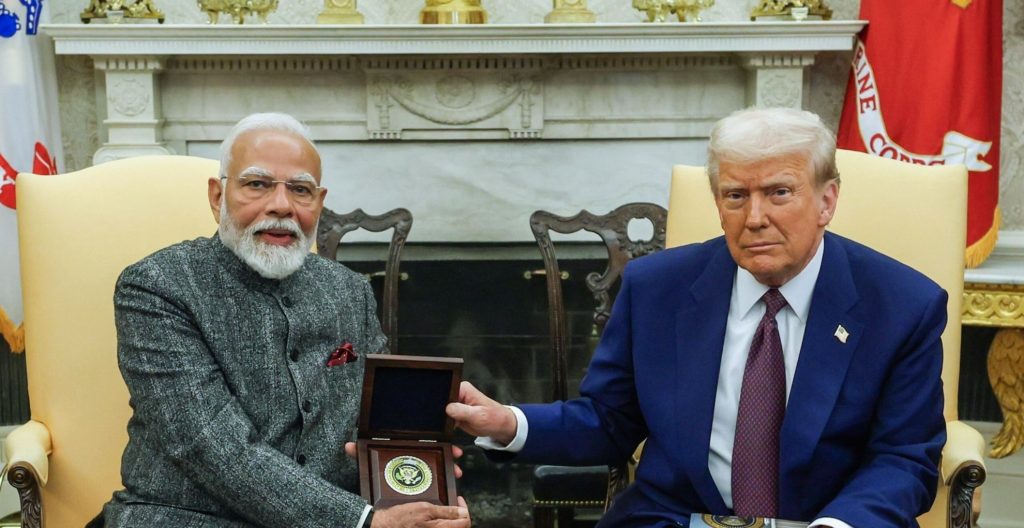Impact of Trump Tariffs on Indian Businesses

Introduction
Trump Tariff’s impact made an enormous difference in the global trade dynamics, impacting the economies of the world, including India. Trump tariffs, introduced by the Trump administration, were implemented into operation to protect American businesses by imposing higher import tariffs on the goods of other countries, including China and India. Indian businesses were confronted with several issues, ranging from rising costs to disruptions in trade. This blog outlines the effects of Trump Tariffs on Indian business and how they responded to such changes.
Understanding Trump Tariffs and Their Implications
Trump Tariff’s entailed the imposition of extra tariffs on imports, with a focus mainly on steel, aluminum, and other critical items. Indian businesses shipping such goods as textiles, auto components, and machinery faced greater duty fees, becoming less competitive in the U.S. market. Loss of India’s GSP status also resulted in many Indian exports losing tariff-free entry into the U.S., again affecting volumes of trade. The effect of Trump Tariff’s was worst felt by Indian small and medium-sized businesses (SMEs) who had a significant portion of their revenues being generated in the U.S. market.
Major Impacts of Trump Tariff's on Indian Businesses
Increased Costs for Exporters
Trump Tariff’s implementation brought higher costs to Indian exporters, particularly those shipping steel, aluminum, and processed goods. Higher tariffs created higher production and export costs, which made firms reprice their products. The majority of firms did not feel that they could stay in the U.S. market with the added cost burden of Trump Tariff’s.
Trade Diversification Due to Trump Tariff's
Since the U.S. market was rising in price after Trump Tariff’s, Indian businesses sought other markets in Southeast Asia, Europe, and Africa. Exporters expanded their customers to these countries in an attempt to compensate for the lost trading opportunities in the U.S. This was one of the ways through which they sought to reduce their dependence on the U.S. and develop more stable commerce relationships with other economies.
Compliance and Regulatory Challenges from Trump Tariffs
Trump Tariff’s created new compliance and regulatory issues for Indian firms. Firms needed to adjust themselves to new ideas in taxation, more paperwork, and extra duties at border crossing. All such added steps towards compliance increased the cost of working and made it difficult for firms further to streamline their export procedure.
Opportunities Amid Challenges Created by Trump Tariff's
While Trump Tariff’s dispersed trade, they also presented new possibilities for Indian businesses. As America searched for substitute supplies to China, Indian industries such as pharma, IT service, and automobile parts saw greater demand. This shift presented Indian exporters with new prospects to grow business even though Trump Tariff’s established obstacles.
How Indian Businesses Can Adapt to Trump Tariff's and Future Trade Policy Changes
- Expanding Trade Partnerships: Reducing reliance on the U.S. by strengthening ties with other global markets can help mitigate the negative effects of Trump Tariff’s.
- Staying Compliant with Trade Regulations: Keeping up with evolving international tax and trade laws is essential for smooth business operations and avoiding penalties linked to Trump Tariff’s.
- Negotiating Favorable Trade Agreements: Leveraging trade agreements that offer reduced tariffs can help Indian businesses remain competitive despite the impact of Trump Tariff’s.
Conclusion
Trump Tariff’s affected Indian businesses with two-pronged effects. While increased cost and compliance concerns led to roadblocks, the shift in the global direction of trade also brought to light new sources for Indian exporters. To stay in the race, Indian businesses must adapt, seek new markets, and be sensitive to shifting trade policy. Though they are capable of adjusting the nature of change and seeking new sources of trade, businesses can continue to expand despite Trump Tariff’s forming barriers.
SOURCE: TIMESOFINDIA
